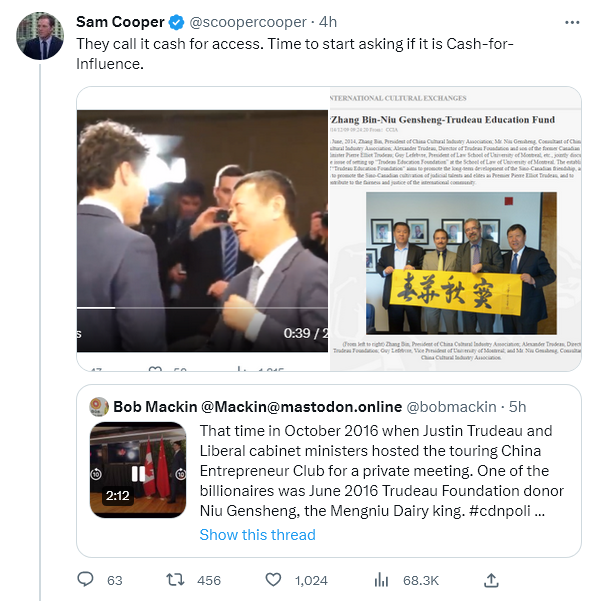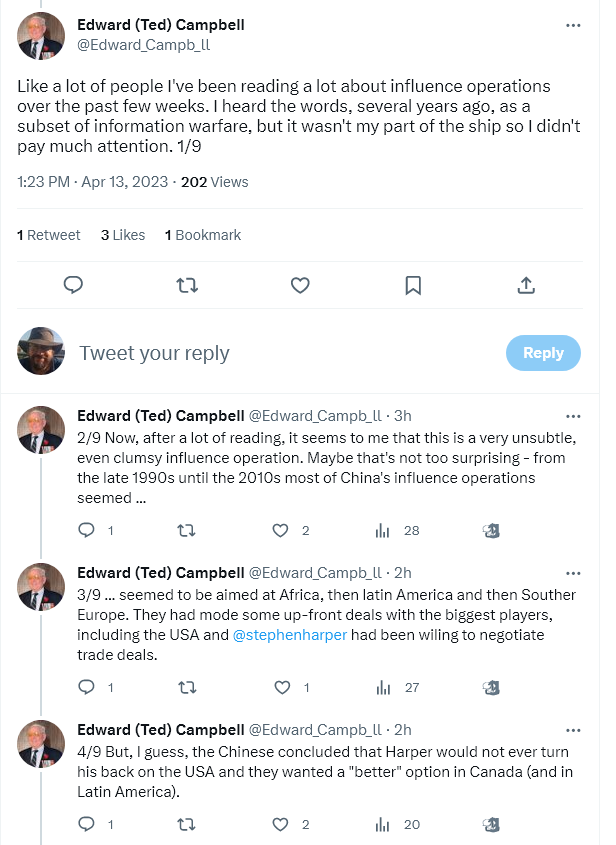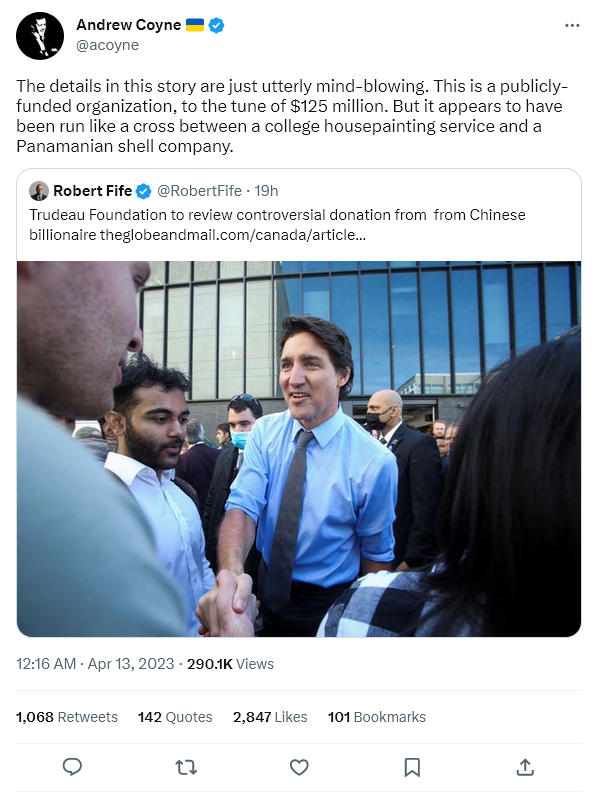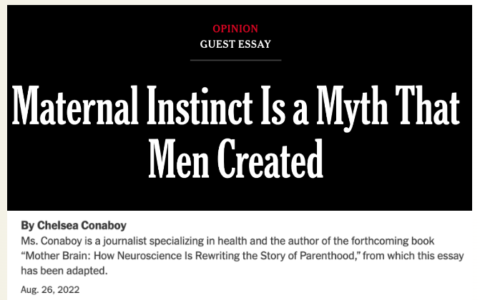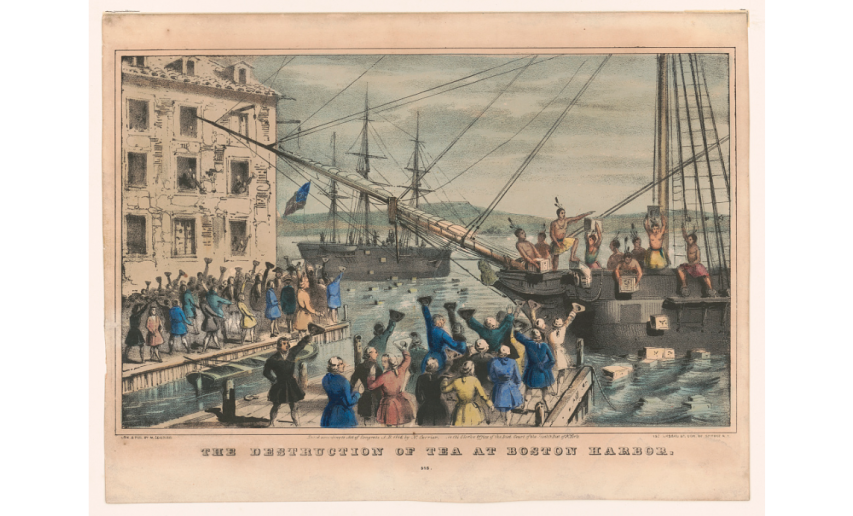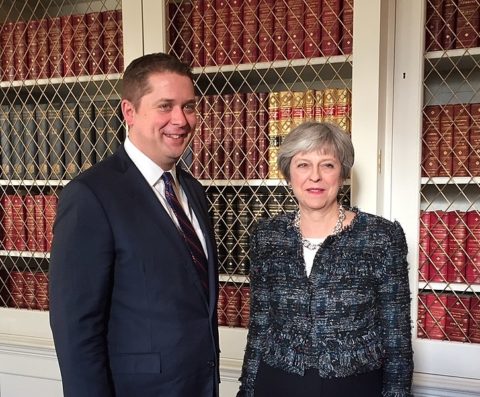Lately some have reminded us of the inherent difficulties in defining Canadian content, especially where a work is the product of several collaborators. Is a movie Canadian by virtue of its actors? Director? Crew? Location? Theme? Even as applied to individuals: Should citizenship be the criterion? Birthplace? Residency? Subject matter?
But the real folly of CanCon is not that it is impractical, or prone to abuse, or even unnecessary, though it is all of those things. It is rather that it is nonsensical at its root, in its very purpose – again, so far as anyone can define it. Is the point, after all, artistic or political? But it cannot be artistic: there is no theory of aesthetics that prefers that Canadian artists should make Canadian art that teaches Canadians how Canadian they are.
It is, rather, a political project: the inculcation of national feeling in the public, for the purpose of creating a political community, separate and distinct from the colossus to the south. Without the Maginot Line of CanCon quotas, it is suggested, we would be overwhelmed: first the artists, then the country.
But note the assumptions built into this emotive appeal: that a separate nationality cannot be maintained without cultural difference; that our cultural differences with the Americans are both sufficient in themselves to justify our statehood and yet so fragile as to be washed away in an instant; that, left to their own choices, Canadians would unhesitatingly choose the products of an incomprehensibly alien culture over their own; and that, by virtue of this diet of foreignism, we would no longer be Who We Are as Canadians. Therefore we must not be left to our own choices.
Which is nonsense, because we would still be Who We Are, even in that hypothetical dystopian future: it might not be Who We Were, but so what? The Who We Are we are now at such pains to preserve is itself vastly different from Who We Were before.
And who, in the end are we? As the comedian Martin Short once put it: “we’re the people who watch a lot of American TV”. The wholesale ingestion of a foreign culture – albeit much of it made by expat Canadians – is an integral part of our distinct national identity, an irony that must forever elude our cultural nationalists.
Andrew Coyne, “The concept of CanCon is pure folly. That’s the problem at the heart of Bill C-11”, The Globe and Mail, 2023-02-08.
May 13, 2023
QotD: The inherent absurdity of “Canadian content”
April 14, 2023
From “cash for access” it’s a very short step to “cash for influence”
Ted Campbell shut down his blog some time ago — unfortunately for those of us interested in Canadian military affairs — but he’s still active on Twitter. Here he responds to a tweet from Sam Cooper of Global News:
Andrew Coyne highlights some of the boggling details in this thread:
August 30, 2022
NYT op-ed – “Maternal instinct is a social construct devised by men to keep women subordinate”
Jerry Coyne responds to a New York Times op-ed by Chelsea Conaboy (author of a forthcoming book from which the op-ed was adapted):
The recent article […] from the New York Times (of course), is one of the worst of the lot. It bespeaks a lack of judgment on the part of the author — who ignores biology because of her ideology — as well as on the part of the newspaper, which failed to hold the author’s feet to the scientific fire. Let this post be my rebuttal.
Author Conaboy, who apparently hasn’t done enough scientific research, maintains that “maternal instinct” doesn’t exist, but is a social construct devised by men to keep women subordinate.
The immediate problem is that Conaboy never defines “maternal instinct”. It could mean any number of things, including a greater desire of women than men to have children, a greater desire of women than of men to care for those offspring, the fact that in animals mothers spend more time caring for offspring than do fathers, a greater emotional affinity of women than of men towards children (including offspring), or the demonstration of such a mental difference by observing a difference in caring behavior.
I will define “maternal instinct” as not only the greater average tendency of females than males to care for offspring, but also a greater behavioral affinity towards offspring in females than in males. The term involves behavioral response, not “feelings”, which are demonstrable only in humans. Thus one can look for difference in “parental instincts” across various species of animals.
But even in this sense, Conoboy is partly (but far from wholly) correct when she discusses humans. It’s undoubtedly true that women were socialized into the sex role as offspring breeders and caretakers, with men assuming the “breadwinning” role. It’s also true that women were often denied access to work or education because their vocation was seen as “reproducer”, or out of fear that they would spend less time working and more on children, or even that they’d get pregnant and would leave jobs. Further, it’s also true that this role difference was justified by being seen as “hard-wired” (i.e., largely the result of genes, which, I argue below, is true), and that “hard-wired” was conceived as “unable to be changed”. The latter construal, however, is wrong, and that is what really held back women. The socialization of sex roles, which still occurs, goes on from early ages, with girls given dolls and boys toy cars, though, as society has matured, we’re increasingly allowing girls to choose their own toys and their own path through life. I of course applaud such “equal opportunity”.
But to claim that women don’t have a greater desire than men to care for offspring, or have a greater emotional affinity towards offspring, is to deny biology, and evolution in particular. (I freely admit that many men love their kids deeply, and that some men care for them as much or more as do mothers, but I’m talking about averages here, not anecdotes.)
There are two reasons why Conaboy is wrong, and both involve evolution.
The first is theoretical, but derived from empirical observations. It thus explains the second, which is wholly empirical and predictive. How do we explain the fact that, across the animal kingdom, when members of only one sex do most of the childrearing, it’s almost invariably the females? (Yes, in many species males share the duties, and in a very few, like seahorses, males provide more parental care; and there are evolutionary reasons for that.)
The reasons for the statement in bold above involves the biology of reproduction. It is the female who must lay the eggs or give birth, and there is no way she can leave her genes behind unless she does that. It’s easier for males to take off after insemination and let the females care for offspring. Given that females are constrained to stick with the fertilized eggs, their best strategy is to take care of the gestation and resultant offspring, which of course allows males to seek other mates. Not only must females carry the fetuses, lay the eggs, and so on, but they are also constrained to see out the pregnancy until offspring are produced and then suckle or tend them in other ways. In some cases it’s the best evolutionary strategy for a male to stick around and share the child-rearing, but often it’s not.
This disparity in behavior holds not just in humans, of course, but in many animals: it’s a prediction — largely verified — of evolutionary psychology.
September 26, 2021
“… is there a single area of public policy where Canada has its shit together?”
In The Line‘s weekly round-up, they point out a little-noticed Globe and Mail article that illustrates something that should really concern Canadians:
Sometimes the big lessons are in the small things. While everyone was busy jawboning about the federal election returns earlier this week, we were also struck by a barely noticed story in the Globe and Mail reporting that the federal government had awarded a contract to begin replacing the disastrous Phoenix payroll system. Phoenix, you’ll recall, was an IT project designed to harmonize the payroll for the entire federal public service. The 2016 rollout was a disaster, resulting in thousands of employees being paid too much, too little, or not at all. Fixing it has cost billions and has not entirely succeeded, and now it is being replaced entirely.
We were still pondering this news when Alex Usher idly wondered: “Genuine question: is there a single area of public policy where Canada has its shit together?”
Alex isn’t some rando Twitter troll. By day he runs Canada’s premier higher education consultancy. But he’s also one of the country’s most perceptive policy analysts, writes a daily blog about just about anything policy related, and is probably one of the three or four smartest Canadians still on Twitter.
Which is why his question was met with more thoughtful responses than the usual schoolyard heckling that is typical of the platform. Fiscal policy between 1993 and 2015, offered Ken Boessenkool. Andrew Coyne half-heartedly suggested monetary policy. Rachel Curran proposed immigration, prisons, and the coast guard, but was quickly set right by people who knew what they were talking about.
So when Usher followed his question with a long Twitter thread showing just how broken Canada is, with a sophisticated and nuanced take on why that’s the case, there really wasn’t anyone left making a serious argument against him. Everyone knows it is true.
Everyone, that is, except two of the most politically polarized groups in the country, who disagree about everything except the capacities of the government.
On the one hand there are the Build Back Better people, mostly housed in the increasingly unpopular Liberal Party of Canada. These people persist in believing that the federal government is poised to make big decisions, to take big actions, on big issues such as climate change, pandemic preparedness, and dealing with the rise of China. They are prepared to talk big talk, and spend big money, in pursuit of their policy objectives.
On the other, there are the paranoid conspiracists who believe that the government is using the cover of the COVID-19 pandemic to implement all manner of social controls. These include suspicions that the government would use a contact tracing app to engage in mass surveillance, that they are putting a 5G payload into the vaccines, or that this is all part of a big Liberal internationalist plan to set up a world government.
While these seem to be diametrically opposed worldviews, what they share is the deep conviction that the government can actually do something. Indeed, what is charming about the conspiratorial worldview is how much faith it actually has in the authorities.
Confront China? Please. We can’t buy ships, planes or even handguns for our military. Pandemic preparedness? You’re kidding, right? We can’t even hire enough nurses for the health-care system. Set up a world government? Lol who would we hire to work for this government? We can’t even figure out how to pay the public servants we already have on staff.
As usual, the correct counter to conspiracy-minded thinking is not to have faith in government, it’s to be realistic about it. Similarly, the correct response to the build back better crew is not enthusiasm, but realism. And ultimately, the right approach to everything the government proposes is deep, deep, deep cynicism.
One of the major reasons I’ve long favoured smaller government — the smaller the better — is that the bigger any organization gets and the more things it tries to do, the less effective it is at all of them. Governments in the western world generally have gotten so big that they’re incapable of doing almost anything in an effective, competent, and repeatable manner. A hypothetical world government would be even worse (just look at the existing United Nations to see how billions of dollars not only get nothing useful done, but often exacerbate existing problems).
QotD: Euphemism
Throughout the Globe piece, neither Robinson nor his interviewer is able to say the words “mentally ill,” let alone crazy. Rather, it is said that he “suffers from a mental illness,” or in Svendspeak, that he is “living with mental illness,” rather like a room-mate. This is a euphemism, a kind of linguistic prophylactic intended to shield the speaker, no less than the listener, from the harsh reality to which it refers. Like all euphemisms and some prophylactics, it will eventually wear out, requiring the substitution of some new euphemism in its place. In time, “living with mental illness” will be seen as a grievous insult, much as “coloured people” is to people of colour. (Except, of course, for those working at the National Association for the Advancement of Colored People.)
Andrew Coyne, “False Sensitivity”, andrewcoyne.com, 2005-05-07.
August 20, 2021
QotD: First Ministers Conferences
What is the point of a First Ministers Conference?
There is no actual necessity for them, you understand. The federal and provincial governments are quite able to function within their respective jurisdictions without their leaders dashing off across the country at regular intervals to quiver their jowls at each other. The first such meeting was not held until 1906. Just 10 more “dominion-provincial conferences” occurred over the next 40 years. Not until the 1950s did they become the semi-annual affairs we know today. That this was also when the TV cameras arrived is possibly not coincidental.
If there were actual business to transact, it could just as easily be arranged by subordinates, or over the phone, or via video-conference. Or if an issue were so thorny that it genuinely required a fleshly first-ministerial encounter, the prime minister could always meet bilaterally with the premier or premiers involved, as Stephen Harper did.
But a full-on, capital-F First Ministers Conference, official cars, flag-backed lecterns and all? There is invariably but one purpose to these: for the 10 premiers to corner and harass the prime minister, using the imbalance in their numbers to depict the feds as the outlier. Sometimes this is in furtherance of the premiers’ perennial campaign for more federal cash. Sometimes, as in the current exercise, the point seems to be conflict for conflict’s sake. But always — always — it is theatre.
Only it is theatre of a peculiar kind: with the curtains drawn and the sound down, the audience being instead entertained by periodic reports from agents for each of the actors about who said what. Thus the breathless dispatches from reporters orbiting the conference — they are kept well away from the actual meeting room — every line of it originating from sources, federal or provincial, with a professional interest in puffing one leader or the other.
Andrew Coyne, “A semi-annual opportunity for premiers to strut and preen and accomplish nothing”, National Post, 2018-12-07.
July 1, 2020
QotD: The Quebec play (that never works) (for long)
Certain things recur eternally, in time with the rhythm of the seasons. Flowers bloom in spring. The swallows return to Capistrano. And the federal Conservatives prostitute themselves for the Quebec-nationalist vote.
Well, that’s a bit strong. Prostitutes, after all, expect to be paid. Whereas the Conservatives’ periodic efforts to sell themselves, their principles and their country to people with a proven lack of interest in all three are as notable for their unremunerativeness as they are for their self-abasement.
The Conservatives have been trying this same act now for several decades, most notably — and destructively, to both country and party — under Brian Mulroney, but in their different ways under Robert Stanfield (“deux nations“), Joe Clark (“community of communities”) and even Stephen Harper (“the Québécois nation” resolution).
Occasionally, they manage to attract some attention in the province that has remained largely indifferent to them since 1891. If they are particularly extravagant in their offerings, as under Mulroney, they may even win their votes — but only for as long as it takes to sink in that there is no support in the rest of Canada for what they are proposing, and no possibility of their being implemented.
At which point the whole exercise sinks in a heap of dashed expectations and accusations of bad faith, leaving the country divided and the Tories in ashes. Until, inevitably, some genius gets it into his head to launch the whole routine again.
Andrew Coyne, “It’s that time again, when Conservatives say anything to woo Quebecers”, National Post, 2018-05-16.
February 4, 2020
“Who could oppose such an obviously sound idea?”
A few pithy comments from Twitter on the Trudeau government’s apparent surprise that a few Canadians don’t think their regulate-the-internet plan is brilliant:
The thing to understand about this BTLR/Guilbeault fiasco is how commonplace it is. There are thousands of people in the Liberal/academic universe – the best and brightest – to whom the idea of gov’t licensing, regulating and subsidizing the media is entirely uncontroversial.
— Andrew Coyne (@acoyne) February 3, 2020
I’m sure he/they were genuinely taken aback at the response. Doesn’t *everybody* think the media should take instruction from a wise and enlightened gov’t, which would after all be run by wise and enlightened people like themselves? Who could oppose such an obviously sound idea?
— Andrew Coyne (@acoyne) February 3, 2020
Look at who’s on the panel that recommended it: law professors! People whose business It is to know about things like, say, the Charter of Rights. But then, given the courts’ appalling record on speech restrictions, perhaps they felt confident even this would be upheld.
— Andrew Coyne (@acoyne) February 3, 2020
Fellow Rush fan Matt Gurney finds the perfect lyrics for the occasion:
We’ve taken care of everything
The words you read
The songs you sing
The pictures that give pleasure
To your eye
One for all and all for one
Work together
Common sons
Never need to wonder
How or why https://t.co/OUurFwaokj— Matt Gurney (@mattgurney) February 4, 2020
CRTC regulating the internet – “Nobody elsewhere is proposing anything like it, and for good reason: because it’s insane”
Ted Campbell suggests that the Canadian government most recent brainfart is a “Tea Party moment” for Canadians:
One commentator on social media dubbed this […] the moment when Heritage Minister Steven Guilbeault said that the Trudeau regime plans to license news websites as a “Boston Tea Pary moment.”
N. Currier. Destruction of tea at Boston Harbor, 1846. [New York: N. Currier]
Retrieved from the Library of Congress – https://www.loc.gov/item/91795889/She was referring to the protest, in December of 1773, when angry American colonists (many dressed as Native Americans to try and hide their true identities) dumped several hundred chests of tea, imported by the East India Company, into Boston harbour to protest the taxes, on almost everything, that had been imposed, by Westminster to pay for the Seven Years War. Westminster felt it was only fair to tax the colonists equally, along with the people of the British Isles, because much of the war, called the French-Indian War, now, by Americans, was fought to protect them and their vital commercial interests. The American colonists disagreed, many on the principle that they should not be taxed without being represented in parliament. We know where it all ended.
It’s a good question. Most commentators seem to agree with me that the Trudeau regime has seriously overreached in supporting the Broadcasting and Telecommunications Legislative Review Panel’s recommendations that, somehow, the distribution of “news” should be regulated by the government. That is a far, far greater intrusion into the liberty of free Canadian citizens than a tax on staples was to Americans in 1773.
Andrew Coyne, writing in the Globe and Mail, opines that “The whole thing is just breathtaking – a regulatory power grab without precedent, either in Canada or the democratic world. Nobody elsewhere is proposing anything like it, and for good reason: because it’s insane. This kind of bureaucratic micromanagement, with its obsession with ‘cultural sovereignty’ and ‘telling ourselves our own stories,’ would have been hopelessly outdated in 1990. In 2020, it’s just embarrassing.” He’s right to use the word “insane,” ~ the proposal is quite possibly unconstitutional, just for a start, it is, certainly based on a deeply mistaken idea of what the internet actually is ~ and he’s equally right to say that every Canadian who doesn’t, actively, protest against this must be embarrassed because each is, for no good reason at all that I can see, supporting a proposal that makes Canada less, far less, of a liberal democracy and more like Ethiopia and Senegal (both with scores below 6.0, the threshold for a Flawed Democracy in the well regarded Economist Intelligence Unit’s latest democracy index) where he will visit this week … perhaps to learn from the leaders of authoritarian regimes what his next steps should be to embarrass Canada further.
Michael Geist on the jaw-dropping performance of Trudeau’s Canadian Heritage Minister last weekend:
In June 2017, the Standing Committee on Canadian Heritage committee recommended implementing tax on Internet services in a report on media. Within minutes, Prime Minister Justin Trudeau was asked about the proposal at a press conference in Montreal. Trudeau’s answer – which literally came as committee chair Hedy Fry was holding a press conference on the report – was unequivocal: No. The government was not going to raise costs of Internet services with an ISP tax. The committee recommendation was minutes old and the government wasted absolutely no time in killing the proposal.
Last week, the Broadcasting and Telecommunications Legislative Review Panel proposed a far broader regulatory vision for the Internet. Indeed, it is difficult to give the full breadth of this plan its due. I will be posting this week on some of the most harmful aspects of the plan, including regulating media organizations around the world with penalties in the hundreds of thousands of dollars for failing to obtain licences, regulating streaming companies despite their massive investment in Canada, regulating everything from app stores to operating systems, creating liability for harmful content that violates Canada’s commitments in the USMCA, undermining net neutrality, and increasing the costs of Internet-based services for Canadian consumers.
Over the weekend, Canadian Heritage Minister Steven Guilbeault was asked about the proposal. In particular, he was asked about the proposal to licence foreign news sites (the example used was Breitbart but it could just as easily have been the New York Times, BBC, CNN, Fox or MSNBC). The answer should have been easy: no.
Instead of “no”, Minister Guilbeault’s response was that it was “no big deal.”
On Monday morning, the minister appears to have reconsidered being quite so blatant in indulging his inner authoritarian control freak:
Guilbeault walked back the comments on Monday, stating that the government had “no intention to impose licensing requirements on news organizations,” nor will the government “regulate news content.”
“… Our focus will be and always has been that Canadians have diversity to high-quality news sources,” said Guilbeault to reporters in Ottawa.
This announcement comes after deep criticism of a previous announcement by the Liberal government, where they said they would force news organizations to apply for a licence.
Guilbeault’s announcement faced intense scrutiny from across the political spectrum with some commentators suggesting that it would be a dangerous attack on the freedom of the press.
November 3, 2019
Colby Cosh on the origins of carbon taxes
In response to a column by Andrew Coyne in the National Post, Colby Cosh outlines the intellectual origins of carbon pricing:
As Andrew knows, the intellectual origins of carbon pricing are purely classical-liberal. Maybe you have to belong to our club to spot that he has carefully not called it an invention of the “left.” When I was an undergraduate, it was the unfashionable libertarian and Hayekian zanies, not the despondent post-Cold-War Marxists, who were preaching what would become mainstream environmental economics. The left has been slow rather than fast to accept the idea of putting a mere price on what they regard as an inherent evil.
All of the foundations of carbon pricing were developed by economists that the left, in all varieties, now regards as cartoonish modern-day demonoids. The gentle Arthur Pigou, who developed the concept of economic externalities and the idea of taxing them, might still pass muster. But Pigou’s reformer-reviser Ronald Coase is deeply suspect, having pioneered an amoral analysis of externalities that tackles social-cost problems like environmental pollution without assigning blame to, or even necessarily acting against, the polluters.
In his paragraph Andrew almost explicitly outlines the theory of the “double dividend” from replacing bad, economically distorting taxes (like the one we impose on incomes) with taxes laid directly on externalities like carbon. The double dividend is pure Gordon Tullock, who is now a hate figure on the left for his role in creating public choice economics.
You can see that this analysis gets pretty complicated in a hurry. The idea of carbon taxation isn’t really of the right or the left. The best term for it might be “neoliberal,” although some people think there is no useful place for that word. To the degree that the left has accepted carbon pricing, they have done so as a (perhaps mostly unwitting) compromise with otherwise abominable thinkers like Coase and Tullock. Total state command-and-control of the economy isn’t an option in today’s Western world, and since there’s a neo-Malthusian crisis in the atmosphere around us, we had better try to solve it without having to execute a global socialist revolution first.
But if instinctive suspicion of the state is a feature of the conservative mind, carbon pricing doesn’t solve the problem completely. Canadian carbon tax designs have been given redistributive features, which makes them more acceptable politically to people who aren’t instinctive or innate conservatives, but creates confusion and distaste for those who are. And to the degree conservatives are inclined to doubt that the state will cut other taxes to make carbon prices revenue-neutral, they have been partly justified, so far, by the history of Alberta and B.C. The “double dividend” is a good idea: can governments be trusted to actually let us collect it?
In a nutshell, that lack of trust is why I’m generally opposed to the federal carbon tax system, even though the idea of carbon taxes (when properly implemented) are far less distorting to the economy than the hodge-podge of taxes and regulations we have now.
Alberta and the Liberals
Andrew Coyne summarizes the deep-seated anger in Alberta toward the federal Liberals … and the rest of Canada:
The point sometimes arrives in politics when a complex of different issues coalesce into one; when people stop listening to the arguments in favour of or against each, and instead allow their emotions to dictate a single response to the lot. We are at such a point in Alberta.
Pipelines, carbon taxes, equalization, the Canada Pension Plan — to which familiar litany we can now add the departure of Encana’s headquarters from Calgary — have become, not so much issues in themselves, but arguments in another, grander meta-controversy. All of the questions raised by each (is there a problem? if so, how is it to be solved? who pays? etc) have been pureed into a single narrative: of a Liberal government that is at best indifferent and at worst hostile to Alberta, whose re-election confirms the rest of Canada is as well.
There is, it should be said, some truth in this. Whether the Liberals have failed to win more than a handful of seats in Alberta in over a half a century because of their historic disdain for the province, or whether the causation runs the other way, the chicken is as malignant as the egg. There’s no doubt some people in some parts of the country would cheerfully shut down the oilsands tomorrow, nor is it impossible to detect a strain of anti-Albertanism in some of the rhetoric on the subject.
Albertans, for their part, are not just in a fight to defend their major industry today, but have been for decades. It is inconceivable, to take the most obvious example, that the National Energy Program, that vast attempt to expropriate Alberta’s oil wealth for the benefit of central-Canadian oil consumers, would have been visited upon either Ontario or Quebec, were the situations reversed.
October 9, 2019
Election 2019 is “the most miserable, dishonest, venomous, pandering and altogether trivial exercise in multi-partisan misdirection since the last one”
Andrew Coyne curses both houses in his comparison between the Milk Dud’s Conservatives and Blackface Justin’s Liberals:

Justin Trudeau with dark makeup on his face, neck and hands at a 2001 “Arabian Nights”-themed party at the West Point Grey Academy, the private school where he taught.
Photo from the West Point Grey Academy yearbook, via Time
The platforms the parties have seen fit to put on public display — those of them that have deigned to present a platform — range from the absurdly unambitious (free museum passes, anyone?) micro-baubles of the Liberals and Conservatives to the utopian free-for-alls of the NDP and the Greens.
If the latter may be discounted as the fantasies of the unelectable, the former are scarcely to be taken more seriously, such is the record of broken promises of both parties once in office — of which the most damning evidence is surely the Liberals’ trumpeting of a book by two dozen academics, published shortly before the election, that found they kept roughly half of their promises from 2015. As defences of integrity go, “what about all the promises that weren’t broken” is not among the more convincing.
That credibility gap — the Liberal platform has the gall to include forecasts for the deficit — may explain why the parties have been less concerned with telling Canadians what they would do in power than with making up stories about what their opponents would do. The Liberals have spent much of the first part of the campaign suggesting a Conservative government would legislate on abortion; the Tories seem bent on spending the rest pretending the Liberals would tax the capital gains on people’s homes.
Or never mind the future. The parties seem unable to tell the truth even about the recent past. Conservative Leader Andrew Scheer has falsely claimed that British Columbia’s carbon tax “isn’t working” (studies estimate the province’s emissions are five to 15 per cent lower than they would be without the tax), that Canada gives $2.2 billion annually in foreign aid to “middle- and upper-income countries” (the correct figure is closer to $22 million) or that 95 per cent of Canadians already have prescription drug insurance (10 per cent have none, according to a report by the Commons health committee, while another 10 per cent are under-insured).
As for Justin Trudeau, he and his spokespersons have confined themselves to misleading the public about the Conservatives’ tax cuts (a cut in the 15 per cent base rate is hardly “for the wealthy,” even if the wealthy woulds get some benefit from it), or their record on health care transfers (transfers under the Harper government were not “cut” or “frozen,” but increased by nearly six per cent per annum). Oh, and about his part in the SNC-Lavalin affair, up to and including his muzzling of witnesses who might wish to tell their stories to the RCMP.
The Liberals, then, have failed to make a case for their re-election, while the Tories have failed to make the case for why they should replace them. To say this — or to note that their platforms have more in common than they have serious differences — is to risk the ire of partisans of both, who are heavily invested in the idea that this is an election of great import, as they are generally in the idea that politics is a noble calling filled with honourable men and women who keep at least half their promises.
September 21, 2019
Justin Trudeau will magnanimously forgive Canadians for their systemic racism
It’s mighty generous of him, after all, it was our racist country’s culture that forced him to wear “skin-darkening make-up” in a totally innocent moment of amusement (or was it three totally innocent moments of amusement?). Andrew Coyne says Justin is no racist … but he is a sanctimonious fraud:

Justin Trudeau with dark makeup on his face, neck and hands at a 2001 “Arabian Nights”-themed party at the West Point Grey Academy, the private school where he taught.
Photo from the West Point Grey Academy yearbook, via Time
If you thought this affair meant an end to the Trudeau brand of conspicuous moral preening — if you thought the rank hypocrisy of lecturing his opponents for their sins against tolerance, even as he was concealing much worse in his past, would deter or even shame him — think again. He seems merely to have exchanged one hypocrisy for another, asking meekly for the forgiveness he has been so unwilling to extend to others.
Which is really what all this is about. It isn’t the insensitivity, or the self-absorption, or the hypocrisy, that will leave the most lasting impression: it’s the calculation, the fakery, the synthetic emotion, the sly manipulation. The prime minister has proved adept at deploying the jargon and cliches of the identitarian left (“microaggressions,” “intersectionalities,” and “ally” all featured highly in the Winnipeg press conference) in moments of maximum political danger: recall his earlier non-denial of having groped a young female reporter, this time as a 28-year-old: “men and women often experience situations differently.”
Is he a racist? No. He is a fraud. The racial masks he wore to conceal his identity 20 years ago are but one in a series: from blackface to feministface to sunnywaysface. If it were just a matter of comparing his youthful errors to his record on racial issues, his partisans might have a point. Certainly the Conservatives, with their record of having exploited fears of Muslims, or asylum-seekers, or God help us, the Global Migration Compact, are in no position to point fingers.
But the character and credibility of a leader is a much broader matter than one issue. It informs every part of his record, the whole of his platform. The leader we saw dissembling so skillfully this week in Winnipeg is the same one who lied to the public, repeatedly, about the SNC-Lavalin affair; who made solemn and explicit promises on electoral reform and balanced budgets he had no intention of keeping; who ran roughshod over Parliament in exactly the same ways he had most decried in his predecessor.
Oh, and: he is the same leader who boasted after the fact of having personally selected a “scrappy tough-guy senator from an Indigenous community” as his opponent for the charity boxing match that would launch his career because he would make “a good foil.” Even on race, that the current occupant of the Prime Minister’s Office is a sanctimonious fraud it is surely at least as significant as that his government sponsors anti-racism seminars.
September 20, 2019
The reason we don’t have – and will never have – an Economists Party
Andrew Coyne points out that the study of economics probably disqualifies you from being an effective politician, because achieving success in the sausage factory of politics requires you to ignore or even work against economic facts:
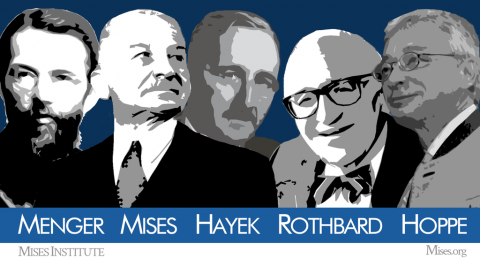
A Mises Institute graphic of some of the key economists in the Austrian tradition (Carl Menger, Ludwig von Mises, Friedrich Hayek, Murray Rothbard, and Hans-Hermann Hoppe.
Mises Institute via Wikimedia Commons.
I believe I was the first to propose the creation of an Economists Party, a political movement that would advocate for the sorts of policies favoured by people who study economics for a living, based on the principles at its core.
It could not happen, of course, any more than the existing parties are likely to suddenly embrace the teachings of economists they have so cheerfully ignored until now, and for the same reason: because politics is, at its core, the opposite of economics.
The basic principle of economics is that everything is scarce. The basic principle of politics is that nothing is scarce. Economics teaches that more of one thing can only be had at the expense of less of another. Politics teaches that we can have more of both things, and of everything else besides.
Since more of one thing means less of another, economics tells us there is no point in favouring one part of the economy over another: the resources diverted to one firm, industry or region are simply resources denied to all the rest. Whereas politics is all about such transfers: a perpetual merry-go-round of redistribution, not from rich to poor, which is appropriate, but from everybody to everybody, which is impossible.
And if, for some reason, a politician were to resist this impulse, he would shortly find himself out of work. For whereas the benefits of a given intervention are typically concentrated on this or that group, the costs are spread widely; its beneficiaries, accordingly, have every incentive to organize and agitate on its behalf, while those footing the bill — consumers, taxpayers, or both — have comparatively little at stake as individuals. They may not even know who they are.
Thus it is that politics inclines, more or less inevitably, to prefer the narrow interest over the broad; producers over consumers; the present over the future. The only difference between the parties is whether this bias to the expedient is dressed up as a philosophy and celebrated as a positive good, or merely yielded to.
September 18, 2019
The Canadian Charter of Rights and Freedoms* (*not all sections apply in Quebec)
Andrew Coyne on the disgraceful habit of the federal government (and nine provincial governments) to look the other way when Quebec decides that some of the guarantees in the Charter don’t apply in La Belle Province:
For many observant persons, particularly Muslims, Sikhs and orthodox Jews, this amounts to a religious hiring bar: the wearing of the hijab, the turban and the kippa are key requirements of their faith, and as such core elements of their identity. To demand that they work uncovered is, in effect, to post a sign saying Muslims, Sikhs and Jews need not apply.
We should be clear on this. It’s not just a dress code, or an infringement of religious freedom, or religious discrimination, or those other abstract phrases you hear tossed about. We are talking about a law barring employment in much of the public sector — not just police and judges, but government lawyers and teachers — to certain religious minorities.
Existing workers may have been grandfathered, but only so long as they remain in their current jobs. Should they ever move, or seek a promotion, they will face the same restrictions. The signal to the province’s religious and, let’s say it, racial minorities, vulnerable as they will be feeling already after the mounting public vitriol to which they have been exposed in the name of the endless “reasonable accommodation” debate, is unmistakable: you are not wanted here. Not surprisingly, many are getting out — out of the public service, out of Quebec.
That this is actually happening, in 2019, in a province of Canada — members of religious minorities being driven from their jobs, and for no reason other than their religion — is sickening, and shameful. That shame is not reserved to Premier Francois Legault or his CAQ government, the people responsible for designing and implementing this disgraceful exercise in segregation, this manifestly cruel attempt to cleanse the province’s schools and courts of religious minorities. It is no less shaming to the rest of us, everywhere across Canada, so long as we permit it to continue.
That is, so far as we are capable of feeling it. But experience has taught us to look the other way when it comes to Quebec, to tell ourselves that it is none of our affair, that we must not raise a fuss when the province explicitly elevates the interests of its ethnic and linguistic majority over those of its minorities, or threatens the country’s life for long years at a time — the beloved “knife at the throat” strategy — to back its escalating fiscal and constitutional demands. We dare not. We cannot. For then Quebec would leave.

